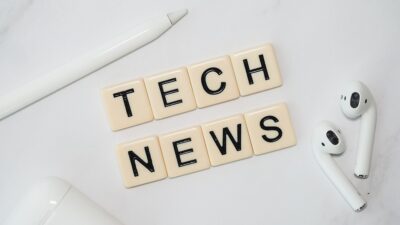The dawn of the 21st century has witnessed an unprecedented surge in technological advancements, most notably in artificial intelligence (AI). This revolution is not only reshaping industries but also redefining the very fabric of our daily lives. With the emergence of innovative technologies such as machine learning, natural language processing, and robotics, we find ourselves on the brink of a new era—one where humans and machines coalesce to enhance productivity, creativity, and decision-making.
The Rise of Artificial Intelligence
Artificial intelligence has evolved from a niche academic discipline to a pivotal component of modern society. Early AI models were confined to specific tasks, but today, deep learning algorithms and neural networks empower computers to learn and adapt much like the human brain. As a result, applications range from voice-activated assistants and chatbots to complex systems capable of predicting market trends and diagnosing diseases.
Industry Transformation
One of the most profound impacts of AI is its transformative effect on industries:
1. Healthcare
AI technologies are revolutionizing healthcare by offering solutions that enhance diagnostic accuracy and improve patient outcomes. Algorithms can analyze medical images with remarkable precision, detecting conditions such as tumors and fractures that may be missed by the human eye. Furthermore, AI-driven predictive analytics are enabling personalized treatment plans and proactive care, thus shifting the focus from reactive to preventive healthcare.
2. Finance
In finance, AI-driven algorithms facilitate high-frequency trading and risk assessment, allowing for quicker and more accurate decision-making. Robo-advisors personalize investment strategies based on individual risk profiles and financial goals, democratizing wealth management for a broader audience. Fraud detection systems powered by AI analyze transaction patterns to identify and mitigate potential threats, safeguarding the financial ecosystem.
3. Supply Chain and Logistics
The integration of AI in supply chain management enhances forecasting accuracy and optimizes inventory levels. Predictive analytics reduce waste and improve operational efficiency, while autonomous vehicles and drones are redefining last-mile delivery. Companies can now respond dynamically to market changes, ensuring timely and cost-effective distribution of goods.
The Cultural Implications
As AI technologies permeate our lives, they are also reshaping cultural norms and social interactions. The rise of virtual assistants and AI-generated content raises questions about creativity, ownership, and the essence of human connection. For instance, while AI can produce music, art, and even literature, debates continue around the authenticity and emotional depth of such creations.
Employment Landscape
The AI revolution inevitably brings concerns regarding job displacement. Certain roles may become obsolete, especially in routine manual or data-processing jobs. However, history shows that technological advancements often create new opportunities. As AI takes over mundane tasks, humans can focus on higher-level functions involving creativity, oversight, and emotional intelligence. Workforce reskilling and upskilling become imperative for a smooth transition, as workers learn to collaborate with AI rather than compete against it.
Ethical Considerations
With great power comes great responsibility. The rapid adoption of AI systems prompts significant ethical dilemmas, including issues of bias, privacy, and accountability. AI algorithms can inadvertently perpetuate existing biases if not designed and trained carefully. Ensuring transparency in AI decision-making processes and addressing data privacy concerns are essential steps toward building trust in these technologies.
The Path Forward
The journey of the AI revolution is far from over. Emerging technologies such as quantum computing and advanced robotics are already in the pipeline, promising even more transformative capabilities. Collaborations among governments, businesses, and academic institutions are essential to navigate the ethical landscape and ensure equitable access to AI advancements.
Conclusion
The AI revolution is redefining the boundaries of possibility, creating a future that blends human ingenuity with machine efficiency. As we stand at this crossroads, the choices we make today will determine the nature of our tomorrow. Embracing innovation while addressing its challenges will enable us to harness the full potential of artificial intelligence and emerge as architects of a more prosperous and inclusive world.



